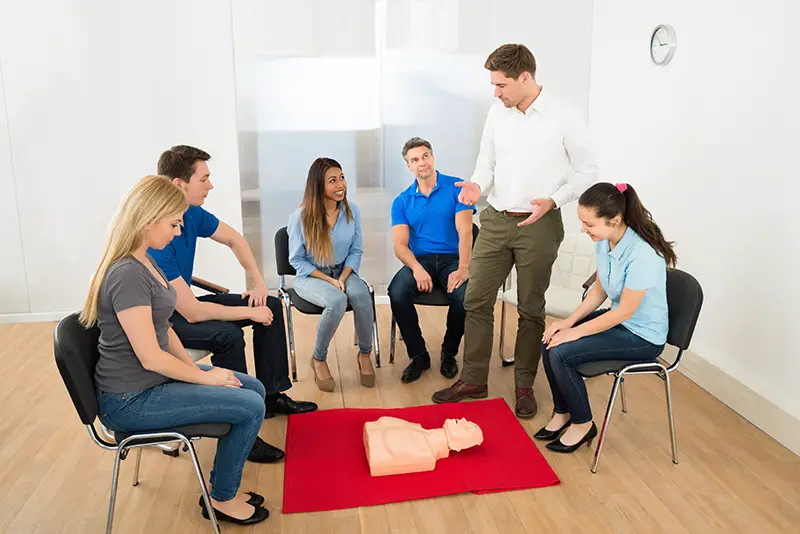Click here to get this post in PDF
Employees are the backbone of your business. Learning how to take care of them means taking good care of the business as well. Therefore, ensuring that they’re in a safe space and are properly taken care of is an absolute must. However, like any doting parent, you can’t very well know and say what’s going to happen in the future.
No matter how many protocols and guidelines you set in place, workplace-related accidents can still happen. That’s why being prepared and knowing where the nearest csu urgent care unit is, is the key to most emergencies. While preparation can mean different things, as an employer, you need to make sure that everyone is on the same page when unexpected things happen.
To help you out, here’s how employers like you can prepare for health emergencies in the workplace:
1. Always Check Your Medicine Cabinet
Most business establishments have first-aid kits, but some don’t prioritize checking on them regularly. It’s crucial to place a dedicated emergency cabinet but checking its content is just as important.
Ensure that you have a steady stock of medicine and multiple first-aid kits, and invest in portable emergency health devices. Because accidents can happen anytime, everything in the medicine cabinet should be working properly and not expired, in preparation for a health emergency.
This is important, especially because health emergencies can range from a stubbed toe to a seizure to a heart attack. Serious health issues, such as cardiac arrest, are emergencies that require immediate help. Fortunately, various medical devices are available, so anyone present in the emergency can provide immediate first-aid treatment. You may check out the automated external defibrillator at https://avive.life/ to know more about how devices like this one can help treat sudden cardiac arrest.
2. Conduct Mandatory First-Aid Training And Workshops
As mentioned, emergencies are bound to happen anytime. No amount of preparation can completely prevent accidents. This is why making sure that your employees will know what to do when these things happen can help lessen the debilitating effects of any health emergency.
As an employer, equipping your employees with the proper training and emergency life saving methods may help someone get out of a life-or-death situation. First Aid Training Courses are paid training, but a worthwhile investment in the long run.
Moreover, safety is not just your responsibility but everyone else’s. Creating a safe workspace for everyone will be all for naught if your employees don’t know how to maintain it, let alone keep an eye out for hazards in the workplace.
Through emergency training, your employees can discern potential hazards that may cause serious accidents and health emergencies in the future. Likewise, when safety becomes part of the workplace culture, employees become familiar with what to do in these emergencies.
It’s also common to panic in situations like these. While panic is sometimes normal, it hampers immediate first aid to the person experiencing the health emergency. As an employer, you need to understand that this type of response typically happens among people who have no idea what to do next in emergencies. It is beneficial to have a list of emergency contacts to hand. A quick search on the internet for “urgent care near me” will provide local results.
By conducting health emergency training, you equip your employees with the right knowledge, so the next time they’re in the situation themselves, you wouldn’t see them flocking around someone having a heart attack.
3. Delegate A Dedicated Healthcare Worker In The Workplace
Emergency training is necessary, but it can only do so much. It’s vital to have someone who knows how to handle health emergencies. Although employees are technically part of your company’s response team when these situations happen, having a healthcare professional at work can help put their minds at ease.
In addition, company nurses are usually equipped with specialized training and certifications to help people in emergencies. They are also certified to provide consultations about health risks and how to effectively avoid them.
In line with this, company nurses can help the company draft health emergency guidelines tailored for the business to help protect employees and even customers.
Furthermore, health emergencies are not always seizures or someone having a gaping wound. Because mental health is as important as physical health, having a company counselor to work alongside the company nurse can further protect employees in most health emergencies.
Additionally, stress is one of the primary causes of mental health illnesses, so keeping your employees’ stress levels checked is another form of prevention. You may read about workplace toxicity to know how it can lead to high employee turnover.
Conclusion
Workplace emergencies vary, but being prepared for life-threatening cases should be a top priority. Understanding how emergencies work (what caused them and what you can do next for prevention) is necessary to safeguard your employees, as well as yourself, in these unexpected situations.
You may also like: 5 Smart Tips for Improving Workplace Safety
Image source: Depositphotos.com


